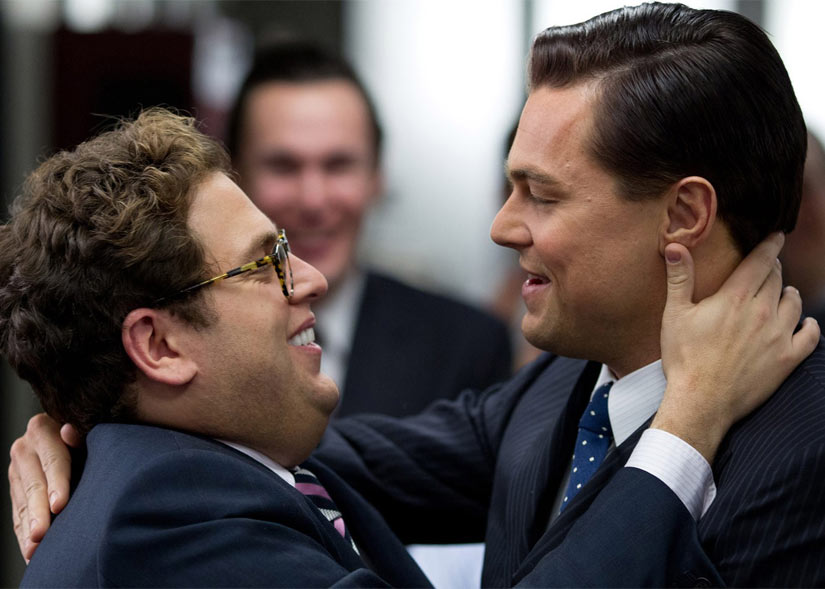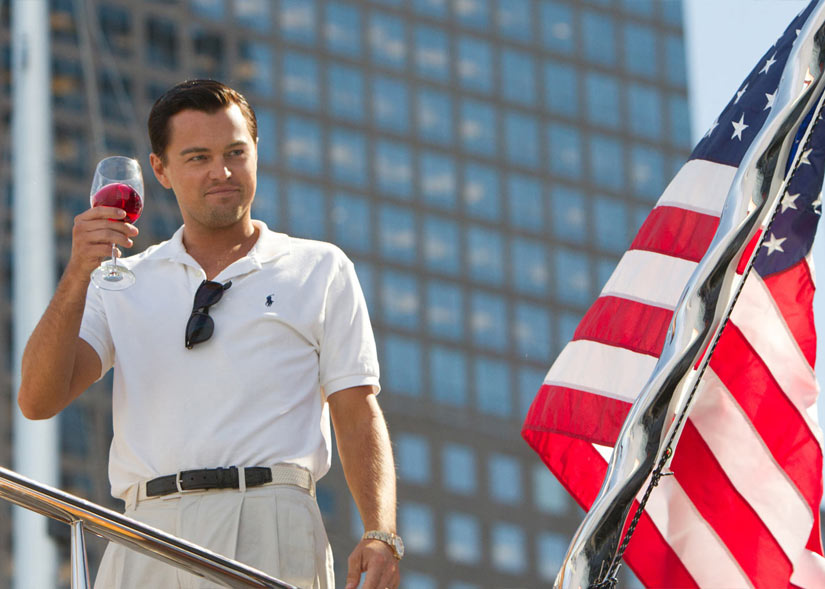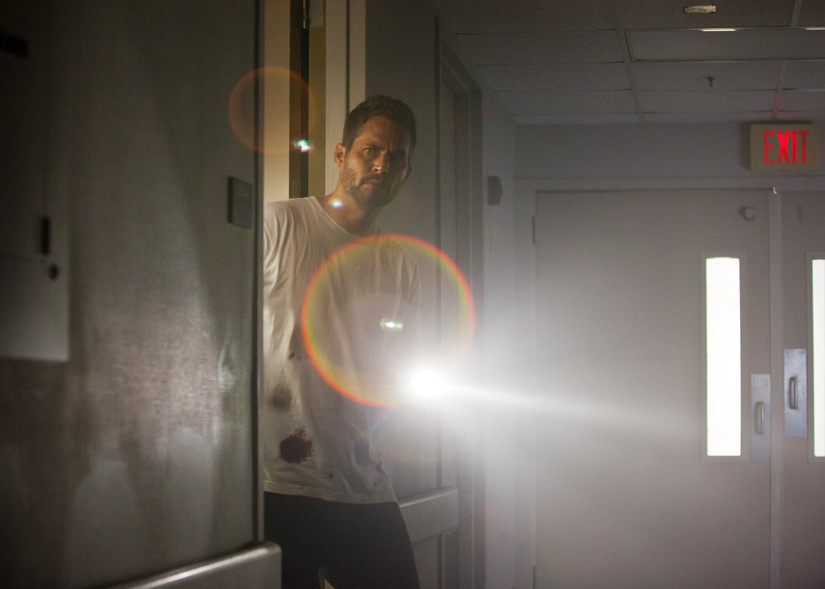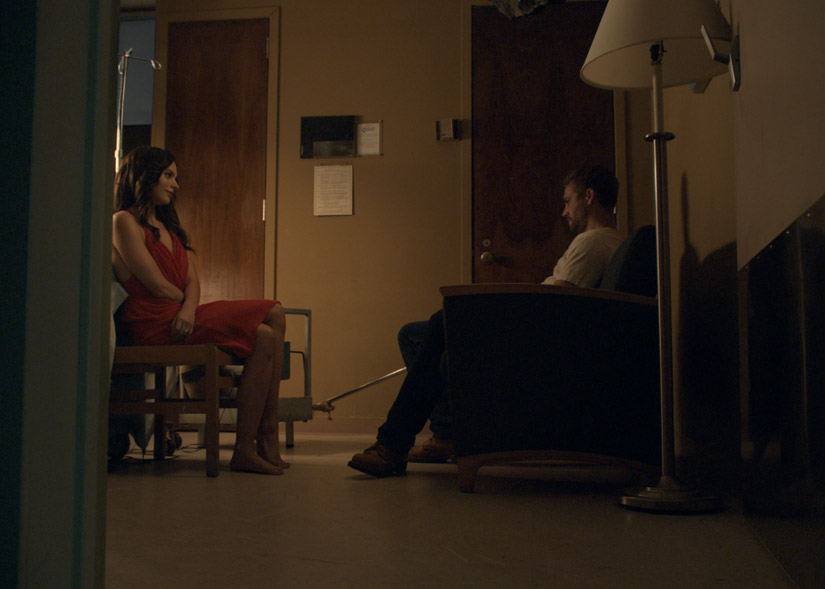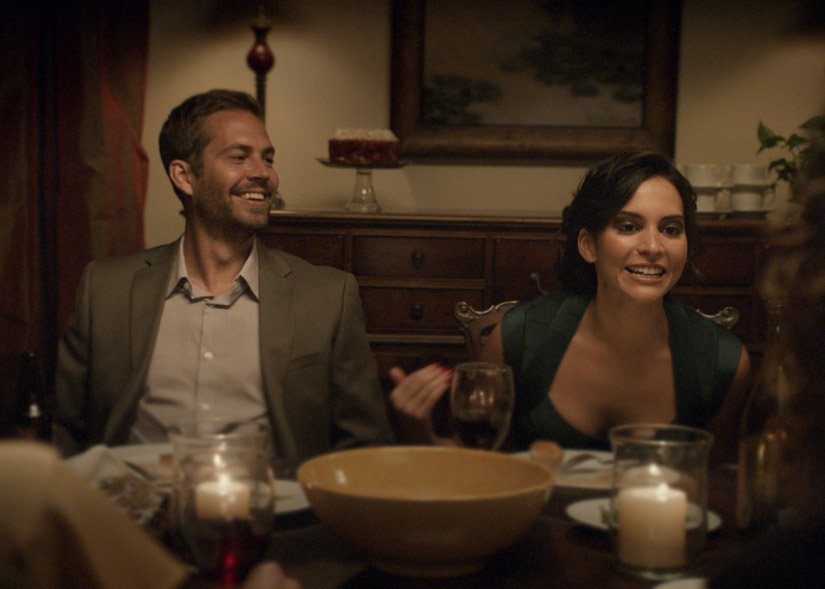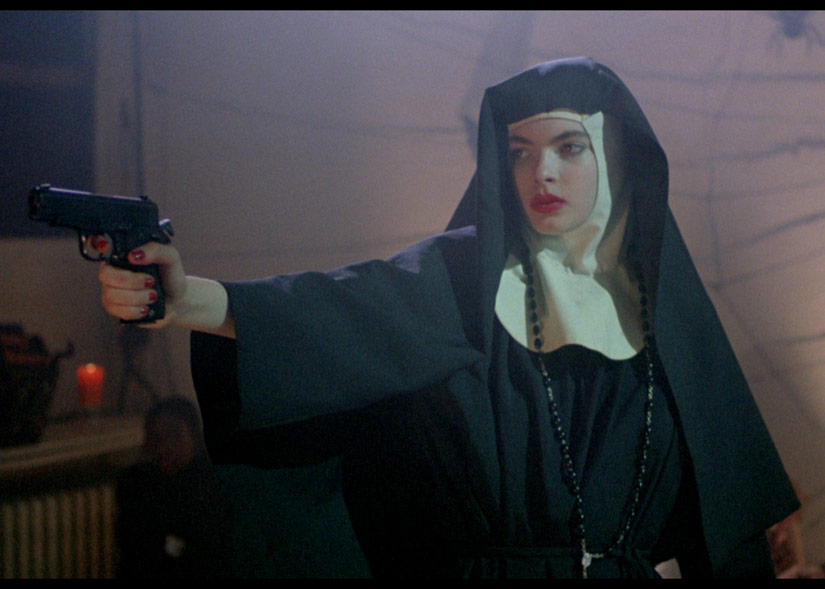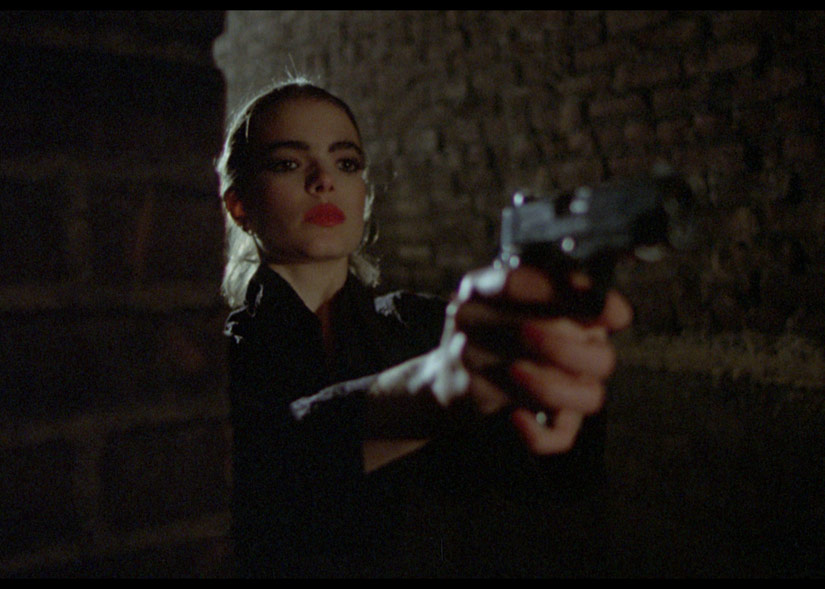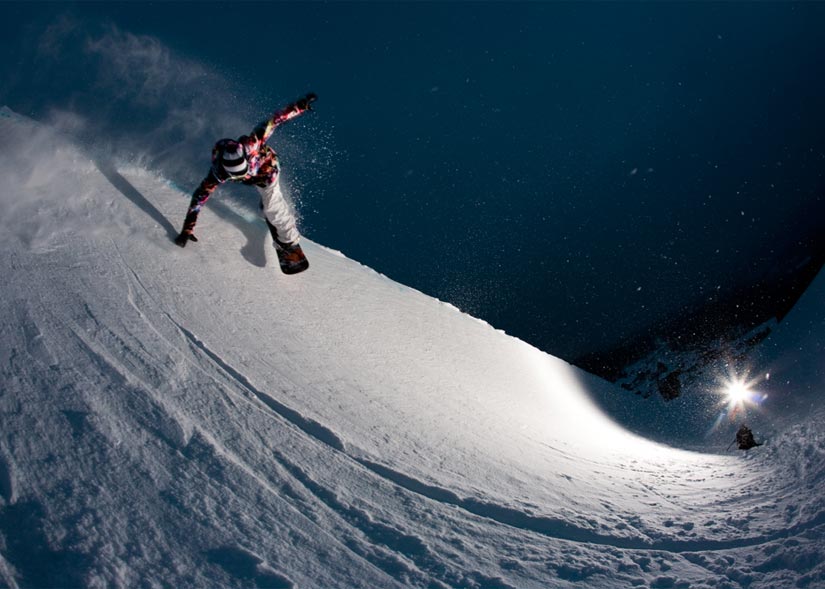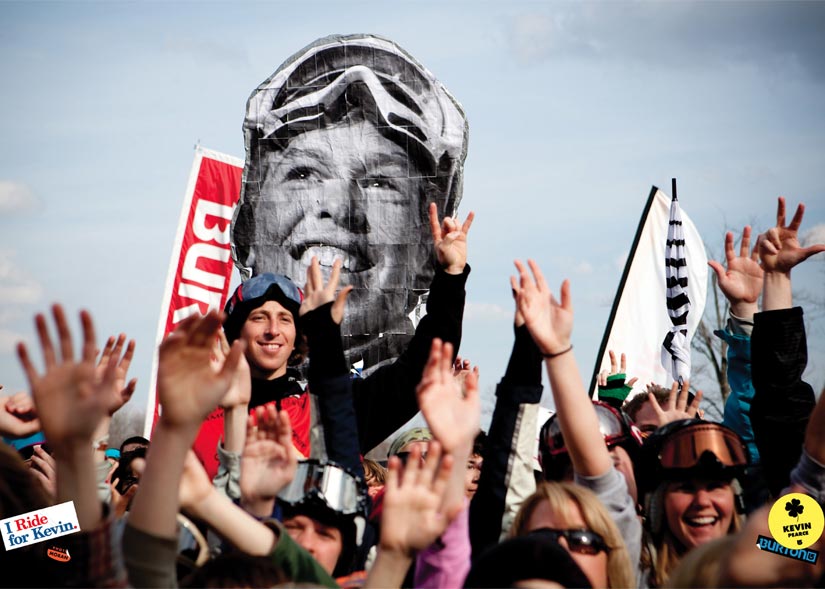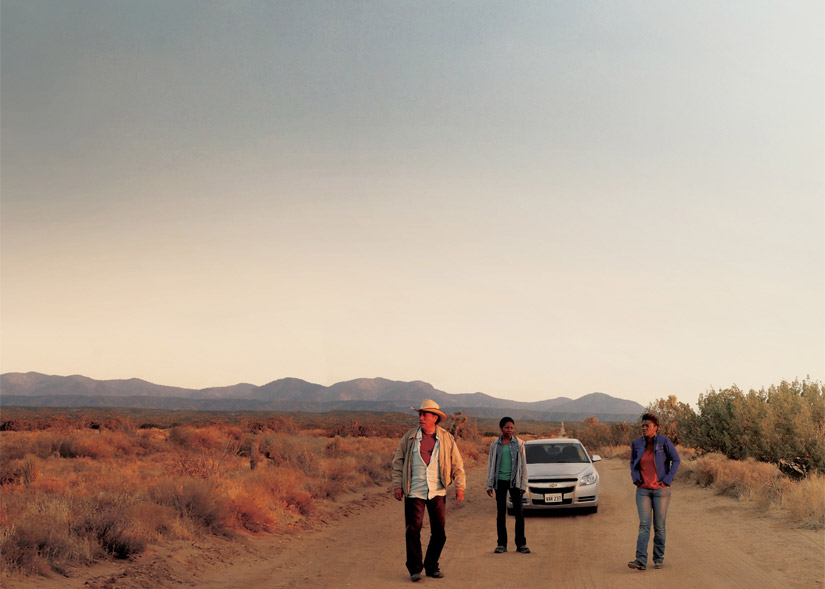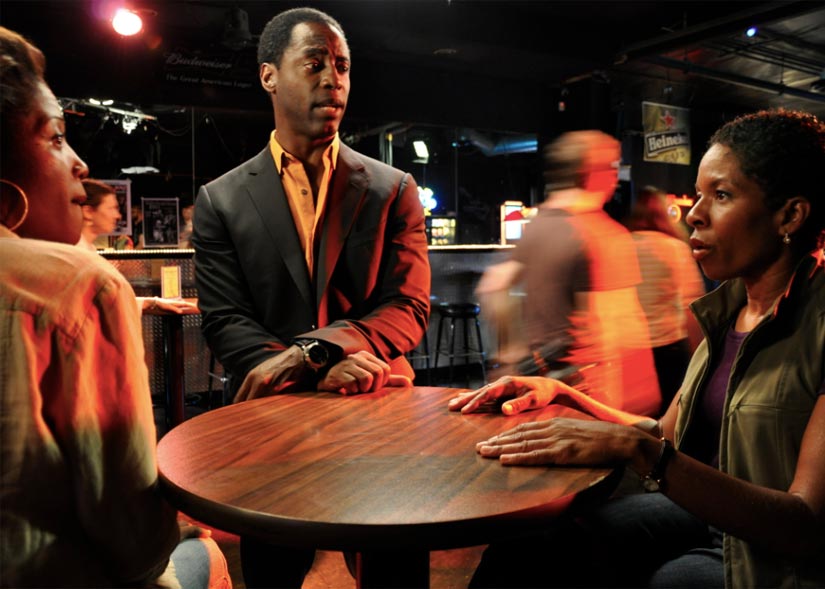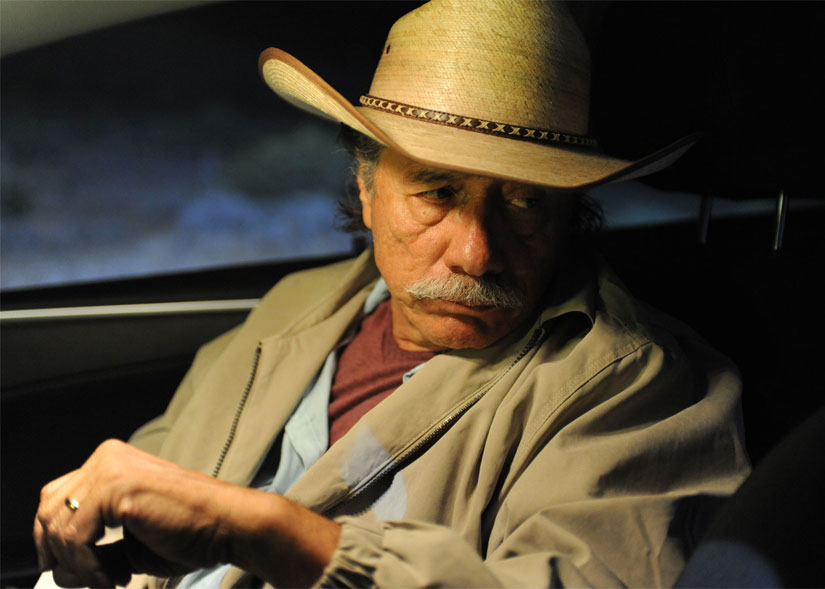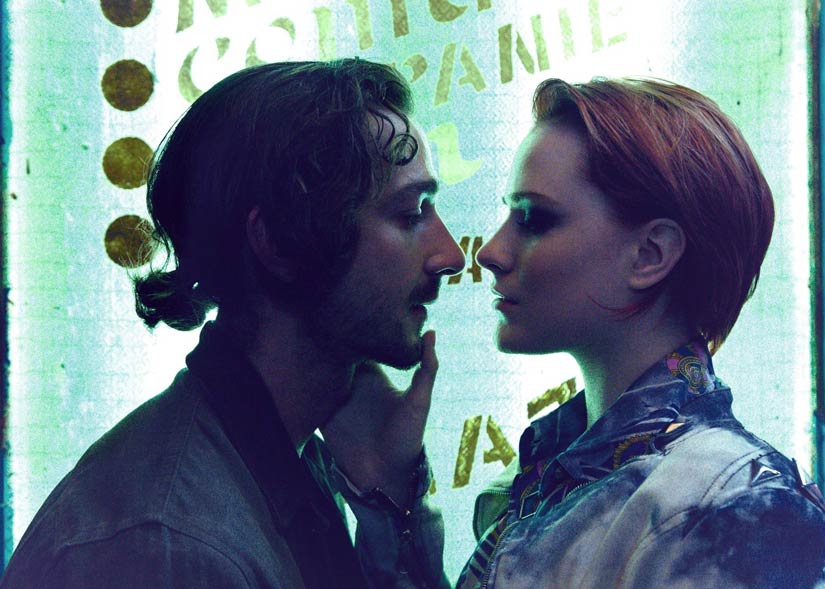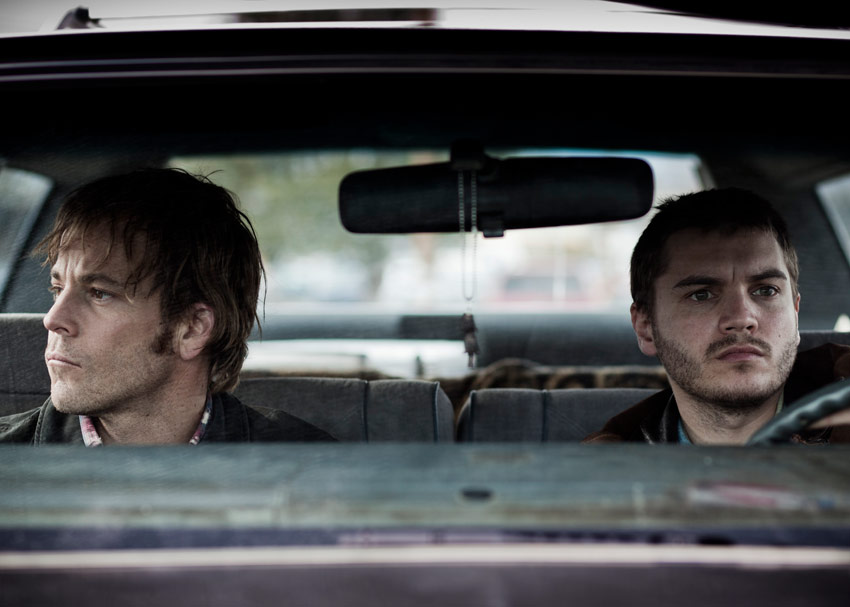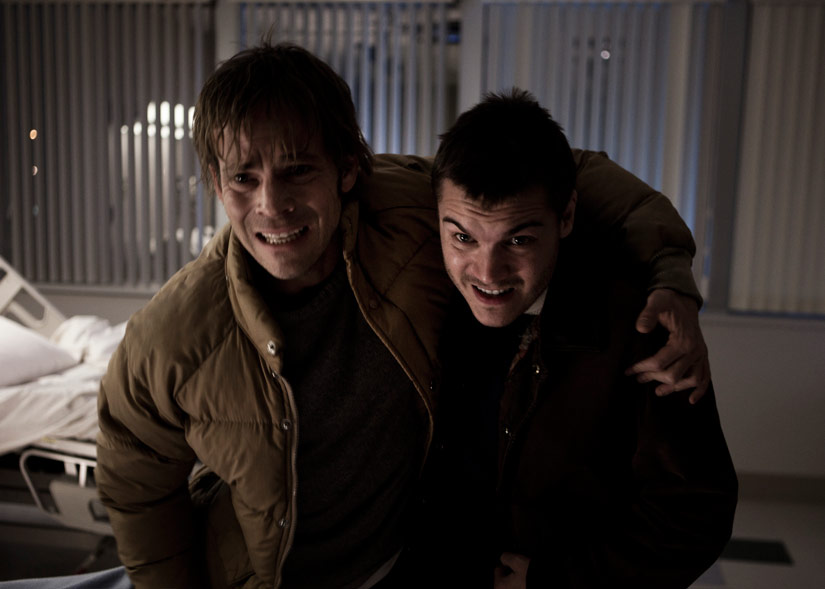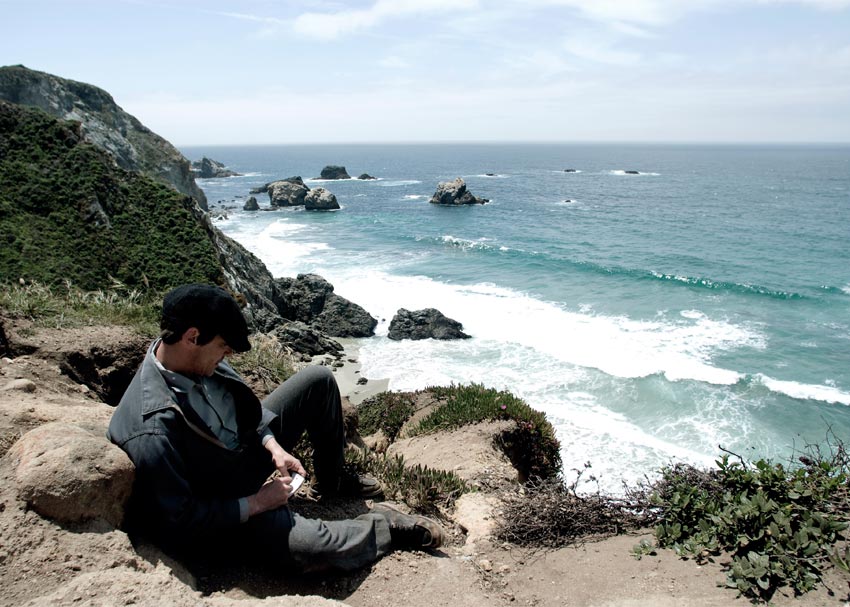[RH Review] The Wolf of Wall Street
The Wolf of Wall Street is the fifth collaboration between director Martin Scorsese and actor Leonardo DiCaprio. With every subsequent film made together, the two have grown increasingly comfortable with one another with DiCaprio becoming Scorsese's contemporary muse akin to his previous collaborations with Robert De Niro. However, it's with The Wolf of Wall Street that the two have achieved a heightened level of comfort and accomplishment that has been building up since the duo's first film, The Gangs of New York.
To call The Wolf of Wall Street the two's best film is an easy statement to make. To call it Scorsese's best film, however, is a sentiment that carries almost five decades' and more than 20 films' worth of accolades, awards, and accomplishments. Yet, here I am right now telling you with a bold face: The Wolf of Wall Street is Martin Scorsese's best film to date.
[youtube id="iszwuX1AK6A"]
The Wolf of Wall Street
Director: Martin Scorsese
Rating: R
Release Date: December 25, 2013
The Wolf of Wall Street is an adaptation of Jordan Belfort's memoir of the same name. During the late '80s and early '90s, Belfort and his partner Donnie Azoff (Jonah Hill) ran a brokerage firm, Stratton Oakmont, that took Wall Street by storm. Over years, the firm grew exponentially, bringing in riches for everybody in the company. Of course, their practices were less than legal, but when money talks, you listen, right? It all comes to a head when a federal agent begins to investigate the company following an expose on Belfort in Forbes.
This is the bare-bones summary of the film's narrative. However, like any great film (let alone a Scorsese-directed one), there's so much more to it, and to delve deeper would honestly spoil the experience for all of you reading this. Instead of digging deeper into the narrative, let me expound on why this is both Scorsese's best film and DiCaprio's best role to date. It's twisted, manic, eye-opening, and everything you may ever want in cinema.
One of the most primary and prominent themes carried through Scorsese's filmography is his analysis of machismo and masculinity, and The Wolf of Wall Street may be the most eye-opening of his films in this regard. While the film carries a dark comedy tone through its entirety, it's through this warped lens of humor. Belfort's story is one full of extravagance, and Scorsese exploits and perhaps even exaggerates this all to a grandiose scale. Everything from hills of cocaine snorted from a hooker's butt crack to awkward S&M scenes to midget tossing is in The Wolf of Wall Street. Take the most ridiculous scene from every late-'90s/early-'00s rap video, mix them together, and you have a framework for The Wolf of Wall Street's abundance.
Yet, it all fits together and makes sense. The Wolf of Wall Street is so much more than a memoir adaptation; it's more than just an analysis of masculinity in the face of young money. Much like Harmony Korine's Spring Breakers, which itself was a film embodiment of the "spring break experience," Scorsese's latest opus is the embodiment of nihilistic hedonism, not just in narrative terms, but in the way Scorsese's cast has never previously explored, which alone serves as the film's highest point.
DiCaprio and Hill serve as the film's nucleus, and the chemistry between the two is amazing. Drop any preconceptions you may have about Hill as an actor - Hill's time to truly shine has finally arrived, and it's through Scorsese's masterful direction that Hill can finally shed his past as a one-note funny man. Sure, he was nominated for a Best Supporting Actor Oscar for Moneyball, but most crowds will still remember him from Superbad. Given some time, The Wolf of Wall Street will prove to be the benchmark for his career thus far. Hill's Donnie Azoff is still essentially the same character he's played for years (i.e. Jewish comedic foil), but he takes the character to new heights through a mixture of his comedy past and Scorsese's ability to simultaneously reign him in and let him go.
The same thing can be said about DiCaprio's performance, albeit at a larger scale. Simply put, you haven't seen a Leonardo DiCaprio role like this. Keeping in line with the film's theme of nihilistic hedonism, DiCaprio lets loose in a way I have never seen from him; it's like he completely sheds who he once was and becomes Belfort. This comes off as a film cliche about actors losing themselves in their roles, but DiCaprio's transformation is so brilliant and near-perfect. DiCaprio's Belfort is manic, self-serving, nihilistic, sexist, but at the same time, he's caring, protective, and giving. It's this balance of portraying a lovable drug addict, a caring sexual deviant, a money-obsessed Robin Hood, a by-the-books walking contradiction that sets this performance above all of the rest.
The Wolf of Wall Street is full of risks (and rewards), and it's the comfortability between Scorsese and DiCaprio that allows the film to even indulge in such risks (further pushing along the theme of hedonism). There's one particular sequence towards the end of the second act where you can just tell Scorsese, DiCaprio, and Hill were just feeding off of one another's energy. I don't want to spoil it, but you'll know it when you see it, and you'll leave the scene never looking at old Popeye cartoons the same way again.
The majority of the supporting cast is full of archetypes that, for better or worse, fulfill these roles as they were needed, but don't stick out beyond that initial need. For instance, Kyle Chandler (Friday Night Lights) is the hard-nosed federal agent, Jon Bernthal (The Walking Dead) is the badass enforcer, Brian Sacca is the mousy junior partner, etc. In a very minor, yet important role, Matthew McConaughey sets the stage for the film early on, acting as Belfort's mentor.
As you may remember, The Wolf of Wall Street faced some editing problems a few months ago, pushing its original November date to Christmas. It clocks in at almost three hours (2 hours, 59 minutes to be exact), but you don't feel its longevity throughout the film. Instead, you're carried through an abundantly entertaining film that keeps the energy high from start to finish. With that said, some fat could have been trimmed, especially when the film slightly hurtles to a conclusion in the last 30 minutes or so.
The Wolf of Wall Street carries everything you love from Martin Scorsese (modern crime, analysis of masculinity, overabundance of profanity, the "American Dream,"etc.), but with a focus on exploring the comedy genre. It's over the top, but not cheesy; grandiose, but refined. The Wolf of Wall Street is overindulgent in its riches, its drugs, its sex, and it's everything you never knew you wanted in a film. If, heaven forbid, this is the final film between DiCaprio and Scorsese, know that they're going out on top.
[RH Review] Hours
I don't know how to start this review. Do I keep it strictly focused on the film, or do I slant it towards Paul Walker and how Hours holds up in carrying his legacy alive following his untimely passing? It's hard to be critical of an actor's performance in light of their passing, especially when a film is released only weeks following their death. However, I can honestly say with dignity that Walker's performance in Hours is one of his best. However, is it enough to carry the entire film?
[youtube id="2wT4KPsy2gc" mode="normal" align="center"]
Hours
Director: Eric Heisserer
Rating: PG-13
Release Date: December 13, 2013
On the eve of Hurricane Katrina, Nolan (Walker) and his wife, Abigail (Genesis Rodriguez), are admitted to a hospital in New Orleans due to Abigail going through a premature labor. As the storm becomes stronger, Abigail's resolve weakens, dying in childbirth. As Nolan struggles with the loss of his wife, Katrina becomes stronger, forcing everybody in the hospital to evacuate. However, Nolan's premature daughter must stay connected to a neonatal incubator to stay alive. With the power diminishing and no help in sight, Nolan must protect his daughter at all costs with every passing minute turning into another grueling hour.
Walker may be best known as an action star because of his role as Brian O'Conner in the Fast & Furious films, but Hours was his attempt at displaying his dramatic range. Designed as an isolated character film, Hours trusts the entirety of the film on Walker's performance. The trust Heisserer had in Walker is paramount, and the actor made the most of it. He still plays the same everyman character he's known for, yet it fits entirely into what the film needed.
When one thinks of a character-driven, isolated film (re: Buried, 127 Hours), it's expected to be an introspective psychological character study. Hours, however, is built as, essentially, a one-character thriller. The conflict, Man vs. World, is framed through the crux of the film is put entirely on the timed mechanic of baby Abigail's survival. With the lack of power, Nolan is forced to use a backup generator to keep his daughter's breathing normal. However, it only holds a charge in three-minute increments, disallowing him from resting, but also actively searching for help. As the film goes on, the amount of time given per charge begins to diminish, and with it, Nolan's energy.
Over the course of the film, Nolan is faced with external threats that, honestly, take away from the film. I understand why looters were used as these threats - Hours is, after all, set during and in the wake of Hurricane Katrina, and looters played as much of a role as the storm itself. However, while their presence was meant to pose as another conflict to Nolan, it took away from the real threat. I wouldn't have removed them completely; rather, I would have used them differently. Again, I can understand their involvement in the film as the aforementioned secondary external threat and how the encounter coincides with Nolan's mental descent/heightened defense over his daughter.
Early on, Hours began establishing itself as a father coping with the passing of his wife while developing an emotional connection to his newborn daughter, the struggle over having to reconcile the conflicting emotions following a death and birth, and the external conflict of Hurricane Katrina. Hours could have went many ways, whether it was an intensive psychological drama, an action/thriller, or many other routes. Instead, it shared bits and pieces from all of the avenues it could have followed. That decision takes away from the film's direction.
Ultimately, however, Hours is weighted on Walker's performance. His Nolan was similar to Bryan O'Conner, albeit reigned in, but Walker's dramatic chops were developing. As it stands now, Walker's performance in Hours was his best ever captured on the big screen. The trust Heisserer put in Walker's abilities was wholly justified, and it's unfortunate to know that we'll never see just how far he would have been able to take his acting abilities.
[RH Review] Ms. 45
After more than 30 years since its original release, Abel Ferrera's Ms. 45 has been resurrected as the next in line of Drafthouse Films' releases. Originally panned by critics, the film has garnered a cult following over the past three decades. With a new remastered, unrated cut, the film is returning to limited theaters and home video for a new generation of film audiences. However, will its cult status be justified in this age of new cinematic advancements, or will it be seen as an outdated blast from the past and nothing else?
[youtube id="dvlNU06HL74" mode="normal" align="center"]
Ms. 45
Director: Abel Ferrera
Rating: N/A
Release Date: December 13, 2013
Thana (Zoe Tamerlis Lund) is a mute seamstress living and working in New York City. On her way home one day, she's viciously attacked and raped in an alley. During the encounter, a burglar breaks into her apartment and assaults her once she returns. However, during the incident, Thana is able to get the upper-hand, accidentally killing the assailant in the process. After dismembering his body, she takes his gun and begins venturing into the city, targeting horny men who may or may not pose as a threat to her. With her psyche diminishing, she begins to purposely bait men as a means of justifiably murdering them in a twisted sense of self-fulfillment.
By making Thana mute, other characters (obviously) have to speak for Thana, outside of the handful of times she directly communicates with written messages. Outside of the noted references/homages to the Swedish film Thriller - A Cruel Picture, what purpose does a mute protagonist fit? Outside of unnecessary exposition and having to audibly be presented to Thana's rationale, is there any real benefit to having Thana mute? In saying that, is there something wrong in keeping the film's protagonist silent? I don't have an answer for this right now, yet it was something I was wondering throughout the film's duration.
Now comes the actual crux of the review: the subject matter. I'll be perfectly blunt: An exploitation film like this would never fly under current MPAA guidelines. With censorship looming over the art of cinema, growing awareness of political correctness, and the internet's newfound embracement of feminism, does Ms. 45 get a "pass" because of its cult status and self-awareness of its genre (late '70s-esque exploitation)? Any modern film that featured a female protagonist (or any person, for that matter) getting raped and sexually assaulted without having a voice, figuratively and literally in this instance, would face so many objections. Is it fair to view the film's subject matter through the current, hyper-political lens we treat contemporary films? Probably not.
Then again, isn't that the whole basis for exploitation films? To take social norms, social taboos, and throw them out the window? Thana fits this super feminist role where she takes justice, no matter how misguided, into her own hands. But, at the same time, it's at the cost of her sanity and sexuality. As her mind begins to further twist and devolve, she begins to dress more provocatively to lure her prey in before killing them. I feel torn and conflicted over the film's content.
From a strictly technical standpoint, the acting is subpar and exaggerated, which is more of a reflection of the genre/times. The HD remastering helped the video fidelity and audio quality, but Ms. 45 was never a technical achievement, anyways. Again, this is due in part to its exploitation nature.
In 30 years, I feel that films and film audiences have grown by leaps and bounds. Films look more grandiose, subject matter is more introspective and entertaining... I can understand why the film has its cult following, but I just can't consider myself to be part of it. With its re-release for new audiences, I'm curious to see if audiences will accept it or malign it much in the same way it was so many years ago.
[RH Review] The Crash Reel
With the increasing dangers and illumination of brain injuries in sports, many steps and restrictions are put in place to ensure the safety of athletes. Sometimes, the decisions made are perceived as coddling and taking away from the sport itself, like the NFL, which has done everything in their power to cut down on concussions and head trauma despite fans' mixed responses to the new rules.
Action sports, from everything from snowboarding to BMX and everything in between, has grown exponentially, both in terms of popularity and exposure to the level of tricks. In saying that, the risk is higher than ever across the board. Unfortunately, many action sports athletes sacrifice their bodies for the sport they love. The Crash Reel is an Academy Award contender about one such athlete and his journey leading up to and following a traumatic brain injury.
[youtube id="Sj0vY2Nymqw" mode="normal" align="center"]
The Crash Reel
Director: Lucy Walker
Rating: N/A
Release Date: December 13, 2013
Kevin Pearce was, at one point in time, one of the best and most popular professional snowboarders alongside Shaun White. However, while training for the Vancouver 2010 Winter Olympics, Pearce suffered a tragic accident that threatened to end his professional snowboarding career. Told through archival footage from Pearce's beginnings in the sport to his rehabilitation following the injury, The Crash Reel examines the real life struggles one faces after a life-changing accident.
From slowly having his dreams to return to the sport he loves taken away from him to transitioning into the next stage in his life, The Crash Reel presents Pearce as an everyman to represent life after near-death. Intertwined with Pearce's stories are stories about other action sports athletes who have faced and, unfortunately, succumbed to traumatic brain injuries, such as famed Women's freestyle skier and pioneer, Sarah Burke.
As previously mentioned, the documentary features archival footage used to follow Pearce's journey. Director Lucy Walker created a narrative that highlights Pearce's rise as a young, aspiring snowboarder, establishing an early friendship-turned-rivalry with fellow snowboarder Shaun White, the meteoric rise in the sport as White's foil, a projected medal winner at the 2010 Winter Olympics, the trials and tribulations faced following the accident, and the necessary steps to create a new life from there. In past documentary reviews, I've noted how a successful documentary can be viewed and weighted by the subject matter and how that topic is analyzed and delivered. A problem I face with them is not being attracted to them if the subject matter doesn't appeal to me. Of course, the best docs are the ones that gave a universal appeal despite its subject matter; in saying that, it's a bit hypocritical since the subject matter itself is what will garner appeal.
The Crash Reel may not have the initial attraction to those who aren't familiar with snowboarding or Kevin Pearce. However, once drawn in, the viewer understands that the documentary may be framed around Pearce's individual story, but it's one that can represent and help humanize and generalize the struggles that both an individual and their family faces when attempting to piece their lives back together. By focusing on somebody who was so young and in a somewhat prominent sport, it has a general appeal.
The Crash Reel illuminates the inherent dangers that every snowboarder faces. By using Pearce as the documentary's focal point, Walker and her team analyze some of the unseen effects a traumatic brain injury have on everybody involved. Pearce's story isn't necessarily used as a cautionary tale for others, but instead as a story for perseverance. As a potential Oscar contender, it may be one of the best documentaries I've seen this year.
Score: ![]()
![]()
![]()
![]()
![]()
![]()
![]()
![]() 8 out of 10
8 out of 10
[RH Review] Go for Sisters
Life leads us down unexpected paths sometimes. The friends of our past oftentimes become the strangers of our future. Yet, when it comes time to test that friendship, we're surprised at how far people will go to help a friend in need... even if decades of silence have past. John Sayles' Go for Sisters is a story about two close childhood friends who simply drifted away during high school. While their lives led them to complete opposite ends of the social spectrum, one incident brings the two back together.
[youtube id="3HX6t2WwNHs" mode="normal" align="center"]
Go for Sisters
Director: John Sayles
Rating: N/A
Release Date: November 15, 2013
Bernice (LisaGay Hamilton) is a parole officer assigned to ex-convict, Fontayne (Yolanda Ross). The film opens with their first encounter at Bernice's office, but it's apparent that there's history between them: they were former high school best friends. When Bernice discovers that her estranged son might have been connected to a murder, she turns to Fontayne to help introduce her to the less-than-legal side of the law. Their quest for answers leads them to an illegal human trafficking ring in Tijuana. They turn to a disgraced former cop, Freddy (Edward James Olmos), to help them navigate across the border to find Bernice's missing son. What entails is a mystery, neo-noir character drama that analyzes the friendship between Bernice and Fontayne and how far a friend would go... for a sister.
As a fan of writer/director John Sayles' previous film, Amigo, I had an idea of what to expect from Sayles' style of filmmaking. Go For Sisters' plot is compelling, but the true joy is in the adventure. Unfortunately, as was the case with Amigo, some of the writing and dialogue was incredibly bland. The interaction between Hamilton and Ross felt way too artificial. Ironically, the most interesting scenes were the ones involving Olmos' Freddy, whose path for redemption led him through Tijuana's criminal underbelly. Olmos is like a "lite" version of Danny Trejo as he carries a badass aura through Tijuana while he gathers intel on Bernice's son's whereabouts. In fact, a spin-off film covering Freddy Sanchez' adventures would be infinitely more interesting than Go For Sisters.
What we have with Go For Sisters is a character drama that isn't super dramatic or captivating. The adventure is way more interesting as the subject matter of border crossing is something I'm genuinely into, but the actual human component of the film, are so bland and boring. Go For Sisters takes a great topic, but bogs it down with an attempt at dramatizing the buddy/road film.
Go For Sisters is a character film in which the characters themselves are the weak point. Yet in saying this, the film isn't all that bad. It has all the right components to make a good film, it's just that the interaction between characters just feels like it's missing that certain "something" that would make it special.
Score: ![]()
![]()
![]()
![]()
![]()
![]() 6 out of 10
6 out of 10
[RH Review] Charlie Countryman
I've felt mixed about Charlie Countryman ever since the first trailer was released some time ago. On the one hand, I was intrigued by the visual style and twisted narrative. At the same time, festival reviews for the film were really mixed. Then, of course, there's the matter of Shia LaBeouf, a personal favorite of mine who hasn't been on the best side of critical reviews due to his roles in the Transformers films and some of the missteps he made earlier in his career.
Nevertheless, I still held out hope for Charlie Countryman, and with it, LaBeouf's true potential. Were my tempered expectations justified, blown away, or completely let down? Read on to find out.
[youtube id="k6gN1rBx2U8" mode="normal" align="center"]
Charlie Countryman
Director: Fredrik Bond
Rating: R
Release Date: November 15, 2013
After Charlie's (LaBeouf) Mom passes away, he sees a vision of her instructing him to go to Bucharest. On the plane ride there, he befriends the passenger sitting next to him on the plane who inexplicably dies. Once again, Charlie sees a vision of the man instructing him to deliver a message to his daughter, Gabi (Evan Rachel Wood). After Charlie delivers the message, he falls in love with her; unfortunately, she's still legally married to a crime lord, Linus (Mads Mikkelsen). Before long, Charlie's quest for Gabi's love inserts him into the twist, seedy crime underbelly of Romania.
Charlie Countryman felt disjointed and messy in its direction. The film introduces Charlie as some sort of savant able to see the dead's souls and their ghosts after death... then no mention of it is brought up ever again. What began as a whimsical, magical film soon degenerates into a drug-filled neo-noir romantic drama... thriller. I appreciate first-time director Fredrik Bond's attempt to make not pigeonhole Charlie Countryman into one distinct genre. However, in doing so, he muddies the film's direction and identity. There's nothing wrong with manipulating genre conventions and finding interesting ways to play with them. The problem, though, is that a film needs a set vision.
Charlie Countryman is everywhere and nowhere at once. At its base, the film is a plodding romance film led by LaBeouf's earnest performance. Say what you will about his personal life or his past films - Shia LaBeouf gives his all in every film he's in, and is dedication and true belief in the Charlie Countryman character can't be ignored. However, because of his earnestness, at least in this film, he's unable to portray Charlie with subtlety. Maybe it's due to the writing or Charlie's character itself, but his character traits, especially with Gabi, come off as pitiful and desperate instead of lovingly. I'm a fan of LaBeouf, and I honestly believe his performance, no matter how many gripes I felt about it, is still one of the film's lone highlights.
Rupert Grint (Harry Potter) makes a small appearance in the film to inject some "comedy" into the film. However, all Grint and cohort James Buckley (The Inbetweeners) do is check off "sex-crazed/drug-addled" scenes from Bond's checklist. On the other side of the spectrum, Mikkelsen and Til Schweiger (Inglourious Basterds) are perfect as the antagonists/menacing threats that represent the "crime/thriller" portion of Charlie Countryman. Wood, meanwhile, dons a Romanian accent that works and doesn't work at the same time. Was it necessary? No. Does it hurt that she uses it? Not really. Still, it would have been great to see her act without some type of gimmick holding her back.
It's kind of fitting, then, that a film about the quest for love and discovery of self-identity is itself without an identity. Charlie Countryman tries to do too many things, yet doesn't do those things well. Outside of some shoddy writing, the acting is a real highlight. Visually, the film is gorgeous and captivating; it's just unfortunate that there's no real meat to Charlie Countryman to back the cinematography up. If Bond had simply had a tighter scope or focus on the film, Charlie Countryman could have been a sleeper hit. Instead, it just might drive you to sleep.
[RH Review] The Motel Life
What do you do when the world is constantly working against you? Do you simply give up and succumb to the inevitable defeat, or do you keep trudging along, hoping and praying for a break? Will it be too late if/when that break ever happens? Alan and Gabe Polsky's film adaptation of musician/writer Wily Vlautin's novel, The Motel Life, addresses exactly this conundrum. However, as compelling as the ideal behind the film is, it's the execution that truly matters.
Is The Motel Life an interesting look at what two brothers do in the face of defeat, or is it predictable and uninspired?
[youtube id="JE-O0H8pjhc" mode="normal" align="center"]
The Motel Life
Directors: Alan Polsky and Gabe Polsky
Rating: R
Release Date: November 8, 2013
Frank (Emile Hirsch) and Jerry Lee (Stephen Dorff) are two close brothers that have never left each other's side after their Mom died when the two were teenagers. Rather than risk being separated by being sent to different foster homes, the two leave school for a life on the road. However, a tragic accident strikes as Jerry Lee loses the lower half of his right leg while attempting to hop a train. Years later, the two live in a motel in Reno, NV, working random jobs to make money.
When Jerry Lee accidentally kills a teenage boy in a hit-and-run, his already existent feelings of worthlessness become even more magnified, weighing heavily down upon him. However, despite running off to avoid any police investigations, he returns to Reno. Meanwhile, Frank, already the burdened with the task of being the responsible brother, begins to succumb to his inherent depression, exacerbated by longings for his ex-girlfriend (Dakota Fanning) and a growing alcohol dependency. However, just when good fortune begins to turn for the Lee boys (thanks to the Buster Douglas-Mike Tyson fight, no less) and when Frank's personal situation begins to turn the corner, the brothers are forced to confront a turn of events that proves to be much darker than anything they've already faced.
Mixed into the film are various animated scenes narrated by Frank and implied to be based off of Jerry Lee's drawings (done by artist Mike Smith). These scenes fit contextually as stories Frank would tell Jerry Lee for comfort, but also add an extra layer to an otherwise straight-and-narrow indie film. The mixed media removes the audience out of the moment, yet is balanced by the entertaining and oftentimes raunchy and pornographic , further adding to the entertainment value.
Despite how dark and innately depressing the film's narrative can be, the chemistry between Hirsch and Dorff lightens the edges a bit. Sure enough, the highlights of the film are the performances delivered by the two leads. Whereas most films exploring sibling relationships would create some type of conflict between them, The Motel Life instead keeps the brotherly love central to the film.
Hirsch has played roles where the film itself overshadows his performances (Speed Racer, Killer Joe) and where his performance truly elevates the film into becoming something special (Into the Wild). His turn as Frank Lee falls between the two extremes, which is very much welcome. You can't resist yearning to help Frank as he slowly becomes a victim to his growing alcohol abuse. Alongside Hirsch is Dorff's Jerry Lee, who spends the film fraught with guilt over the teenager's accidental murder, but also the guilt of his lack of self-worth holding Frank back. The duality of Jerry Lee's character as both Frank's comedic foil, but also the most suffering character is finely portrayed by Dorff's performance.
The great performances from Hirsch and Dorff are definitely a highlight of an above-average film. The plot can get a bit messy, especially with the subplot involving Frank attaining money (despite the specific boxing scene being otherwise entertaining), and the aforementioned animated scenes are fun distractions, but distractions nonetheless. However, The Motel Life has the potential to attract and appeal to the right audiences. The duality between internal and external conflicts of the plot paired with memorable performances from Hirsch and Dorff will be enough for most, but the predictable third act and spotty narrative holes might turn others away.
Score: ![]()
![]()
![]()
![]()
![]()
![]()
![]() 6.5 out of 10
6.5 out of 10
[RH Review] Big Sur
When Jack Kerouac wrote On the Road, he was in his mid-to-late 20s, earnest and optimistic about what America could offer him. However, by the time On the Road was published, Kerouac was in his mid-30s, already a witness to the country's rapidly evolving landscape. Feeling jaded and unnerved by the sudden success of On the Road and readers' misunderstanding of who Kerouac actually was (the near middle-aged disillusioned Kerouac and not the desperately optimistic mid-20s Sal Paradise), he visited fellow Beat writer Lawrence Ferlinghetti's cabin in Big Sur, California to unwind, serving as the basis of 1962's Big Sur.
Does the Big Sur adaptation capture Kerouac's language-heavy prose, or is it encumbered by Kerouac's writing style?
[yahoo id="movies.yahoo.com/video/big-sur-trailer-205027055" mode="normal" align="center"]
Big Sur
Director: Michael Polish
Rating: R
Release Date: November 1, 2013
Jack Kerouac (Jean-Marc Barr), jaded with the success with On the Road, travels to Lawrence Ferlinghetti's cabin in Big Sur to escape from city life. However, after three weeks, he becomes restless and yearns to return. Over the course of three visits between San Francisco and Big Sur, he reconnects with Neal Cassady (Josh Lucas), the proclaimed hero of On the Road, Carolyn Cassady (Radha Mitchell), Michael McClure (Balthazar Getty), Lew Welch (Patrick Fischler), and others.
In an attempt to help Kerouac break out of his slump, Cassady introduces him to his mistress, Billie Dabney (Kate Bosworth). However, Cassady finds himself jealous of the budding relationship. Throughout the affair and the drinking binges, Kerouac begins to slowly descend into alcohol abuse. With his dependence on drinking and the pre-existing despondence he already faced, he falls into a downward spiral plaguing both his physical and emotional well-being.
Kerouac wrote in On the Road, "...nobody knows what's going to happen to anybody besides the forlorn rags of growing old..." Big Sur is the romantic follow-up to those exact words. It's a sad look at what the author faced, especially with knowledge that he died a short seven years after Big Sur's publication. Of course, this is a review of the film adaptation and not the novel itself, and many things were lost in translation from the pages to the screen.
Obviously, the biggest disparity between the two is the inability to translate Kerouac's prose into a film. As seen in Walter Salles' On the Road, it's tough to adapt a Kerouac novel. His writing style is very language-heavy prose with some plot present, but the true heart/art of Kerouac's writing is found in his ambient word association and the beat and rhythm of it all. Director Michael Polish attempts to emulate this with voiceovers taken directly from the novel. The opening scenes of Bixby Beach supplement the voiceovers, but it's not enough.
That's not to say that Barr and the rest of the cast didn't deliver great performances. Compared to Kill Your Darlings' Jack Huston and On the Road's Sam Riley, Big Sur's Jean-Marc Barr has been the best big screen Kerouac I've seen. He's inquisitive, wise, and self-destructive in the way Huston and Riley weren't. Granted, the comparison comes with an asterisk, as these are three different films, actors, directors, novels, and phases in Kerouac's life. However, Huston and Riley didn't capture Kerouac's essence.
Adapting Jack Kerouac is hard, yet Polish did what he could to do both Big Sur and Kerouac justice. Unfortunately, the mystery of adapting Kerouac novels to the big screen continues unsolved. Beat Generation fans will enjoy seeing some of their favorite writers portrayed on the big screen, but there's little appeal to general audiences.
Score: ![]()
![]()
![]()
![]()
![]()
![]() 5.5 out of 10
5.5 out of 10



